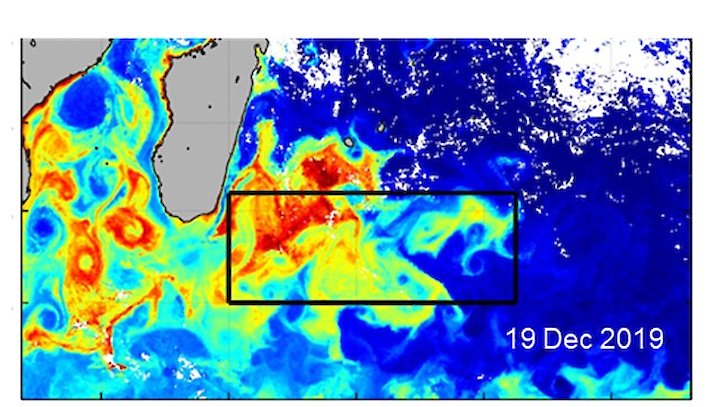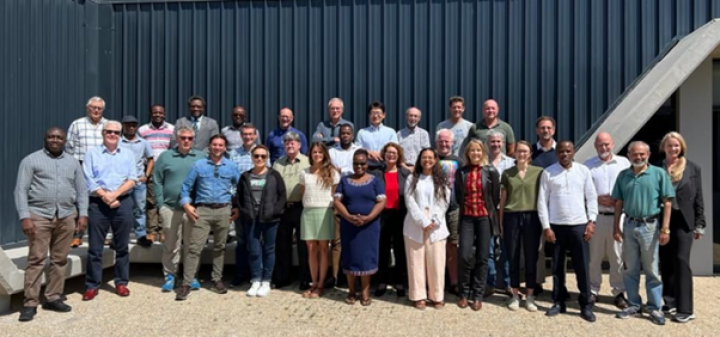Background
The Agulhas Current Large Marine Ecosystem in the southwest Indian Ocean is an important region of periodic large-scale algal blooms which are readily identifiable by satellite observations. Contrary to expectation, these blooms have been found during the austral summer months when much of the region is devoid of nutrients in the surface layer of the ocean, and therefore productivity would be expected to be low.
Satelite image of madagscar bloom in December 2019
Given the extent of these algal blooms, it is probable that they are impacting the regional ecosystems, which sustain local fisheries, particularly in Mozambique. This has concerning implications for food security in the region.
Despite several scientific investigations, the drivers of these blooms are not yet understood. Therefore, it is challenging to predict their future persistence and resulting societal impacts. One possible driver of the blooms that has not yet been investigated is the role that atmospheric depositions of nutrients may play in creating and/or sustaining these blooms.
The complexities and uncertainties of the environmental drivers of the blooms and their societal importance make this a challenging and important region in which to consider the most appropriate approach to the formulation of policy advice. Additionally, this will provide a test case within which to evaluate new approaches to adaptive environmental management. This has therefore been the subject of WG 38’s most recent investigation.
Workshop
In the past, WG 38 has focused on the scientific aspects of the deposition of chemicals in the ocean. In 2019, they began developing a new type of workshop, one that brought scientists together with ocean managers and policymakers. This was an interdisciplinary approach to address issues related to the importance of atmospheric deposition in a specific area of the ocean and include an element of capacity building.
The workshop was initiated by GESAMP at its meeting in New York in 2019 but was delayed for several years due to Covid. It took place over 4 to 7 October 2022 at Nelson Mandela University in Gqeberha (Port Elizabeth), South Africa.
Please find the Terms of Reference for this work here.
The results of the workshop are now being synthesized for publication, both as part of the GESAMP Reports and Studies series as well as in the peer-reviewed scientific literature.

